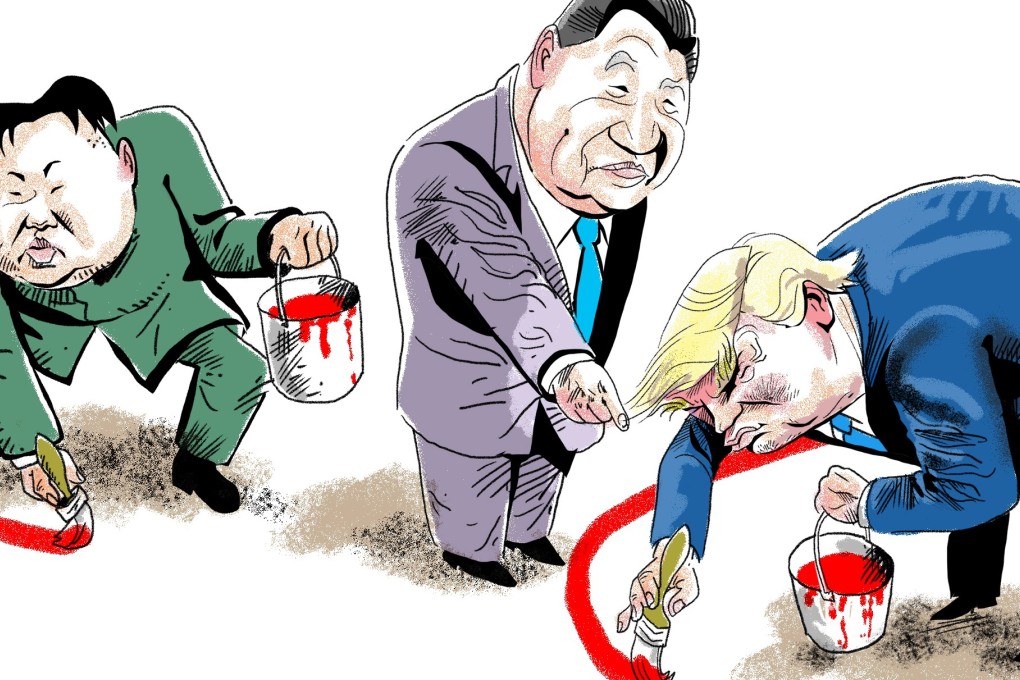Advertisement
Can dealmaker Donald Trump bring lasting peace to the Korean peninsula?
Patrick Ho says Kim Jong-un and Donald Trump’s apparent awareness of mutual red lines over the Korean crisis is a great opportunity for the US president to broker lasting peace, but only if he can work with Beijing
Reading Time:4 minutes
Why you can trust SCMP


In a further show of force, the USS Carl Vinson-led carrier strike group arrived in waters off the Korean peninsula, where it was joined by the USS Michigan, a nuclear guided-missile submarine.
All evidence suggests that Trump is flexing his muscles in preparation for a decisive solution to the Korean nuclear crisis.
Trump willing to meet North Korean leader Kim Jong-un ‘under the right circumstances’
Interestingly, a turning point came on April 25, when North Korea did not conduct a widely expected sixth nuclear test on the occasion of its army’s 85th anniversary.
Advertisement
That sent a signal that the country would not cross a red line set by China and the United States. This could be the first step to de-escalating the Korean crisis.
Watch: Is there a red line for Trump on North Korea?
Very often, mainstream media depicts Pyongyang as irrational. Fortunately, however, the majority of policy circles in Washington do not. The regime of Kim Jong-un may appear bizarre, but the Kims are hard-edged rationalists whose actions have always had clear objectives: keeping the family in power, gaining international respect and improving the country’s economy. Among the three, the first trumps everything else.
Advertisement
Select Voice
Select Speed
1.00x